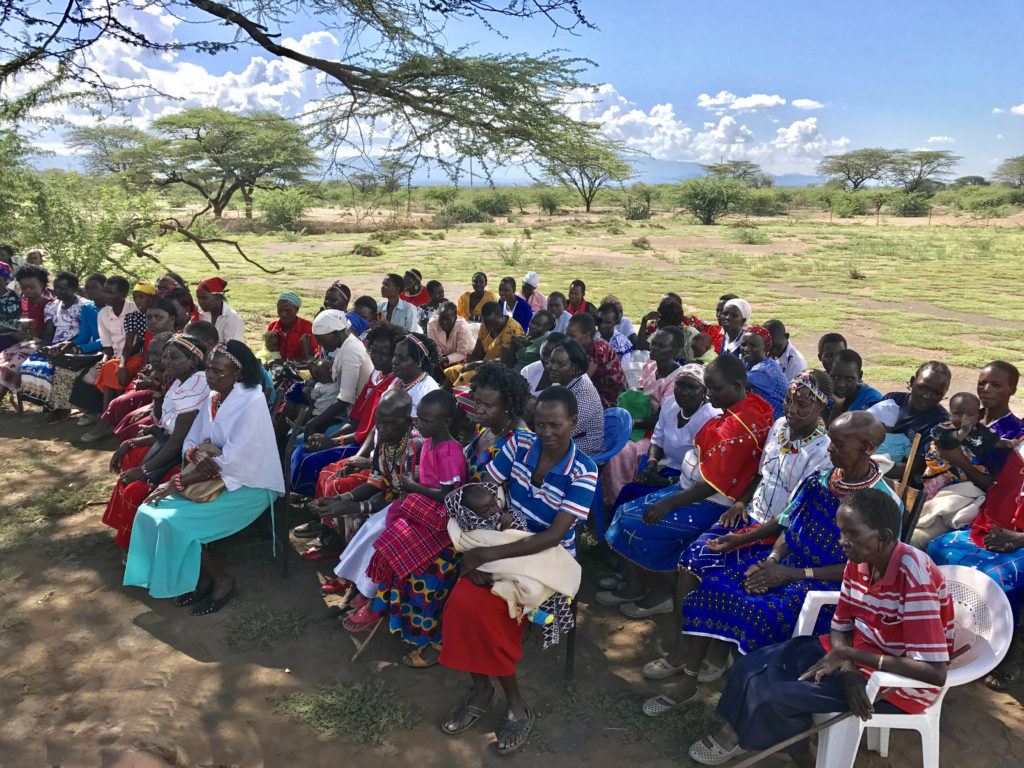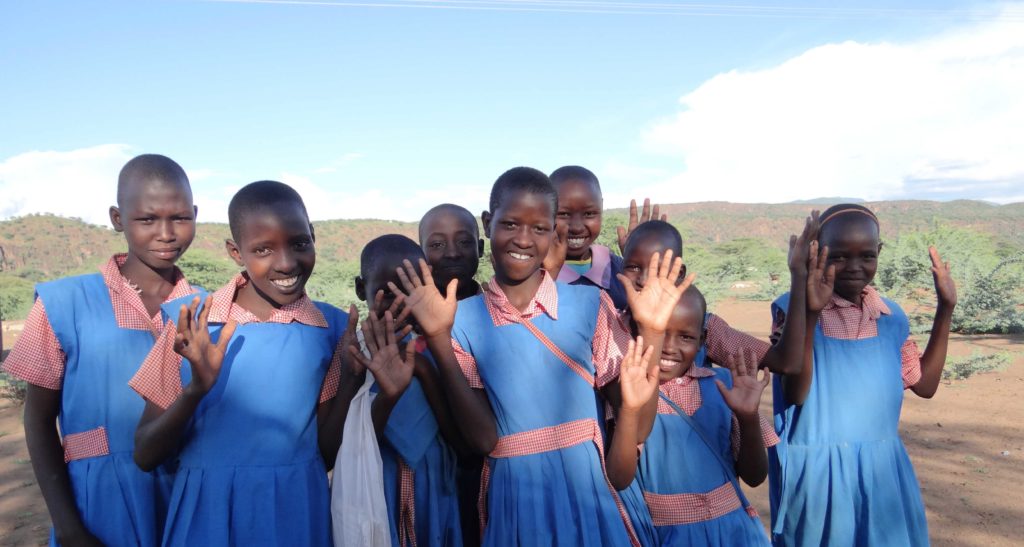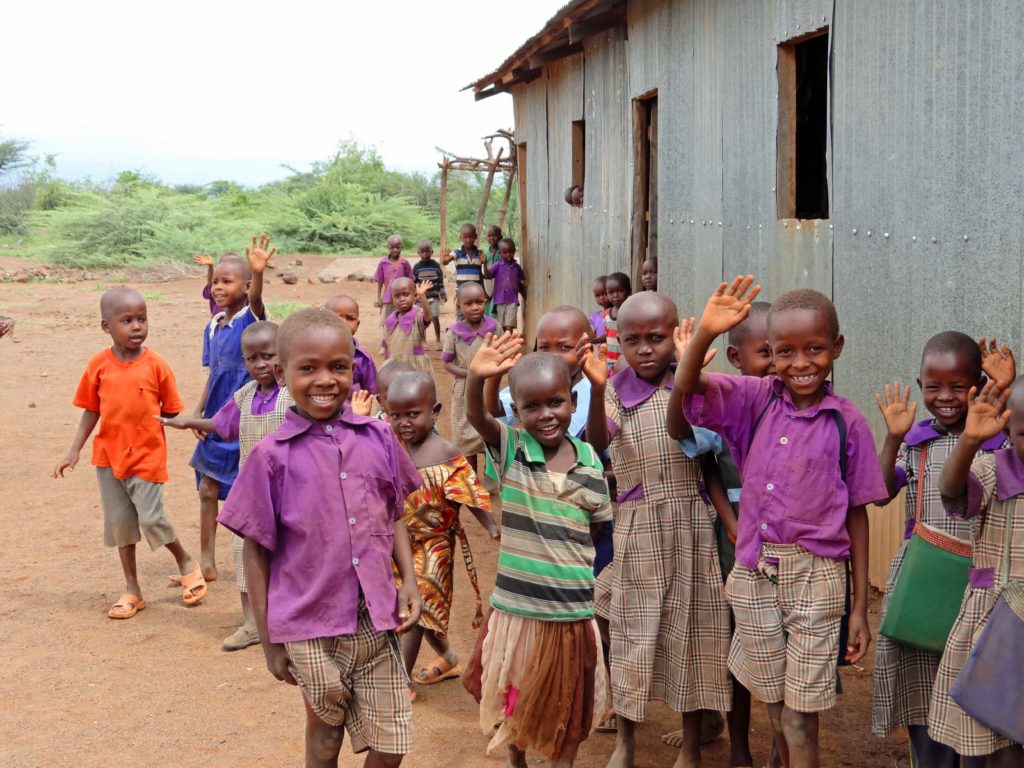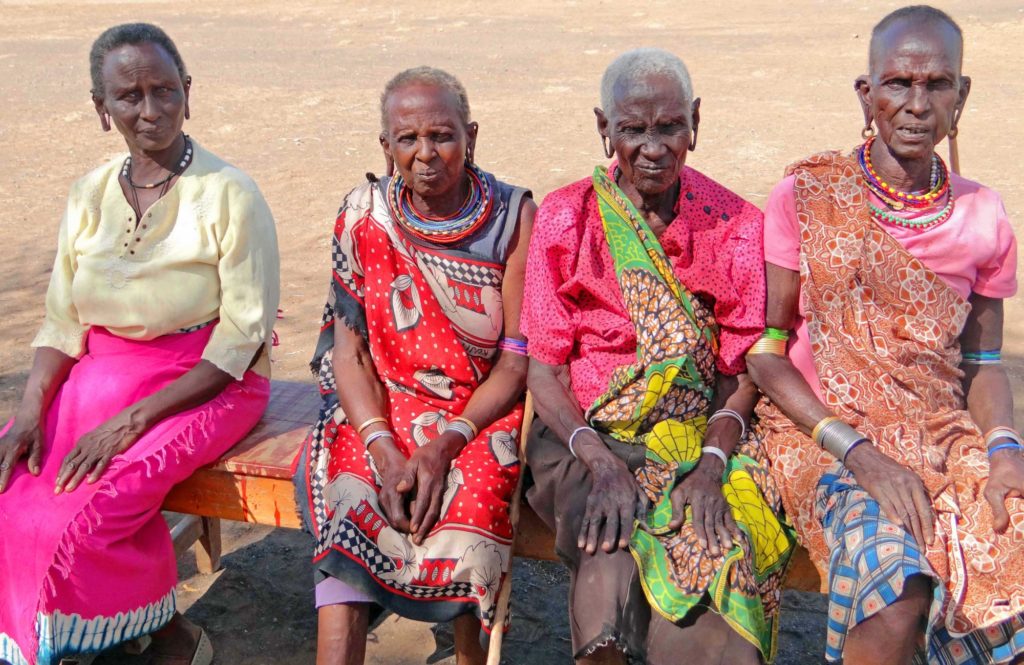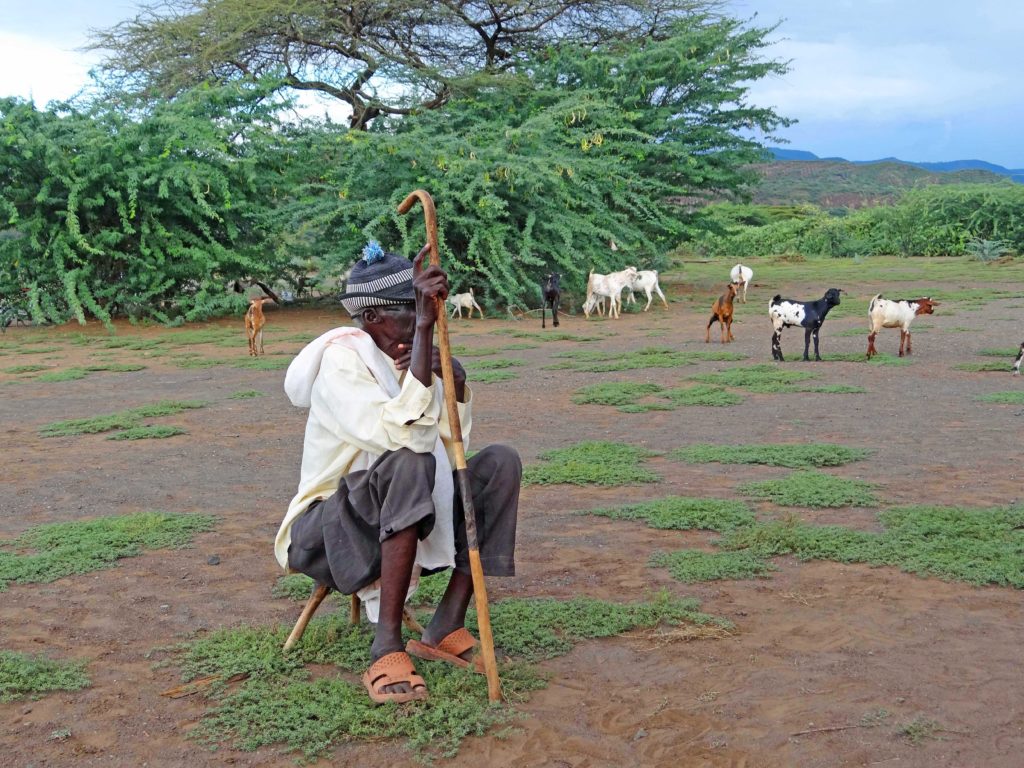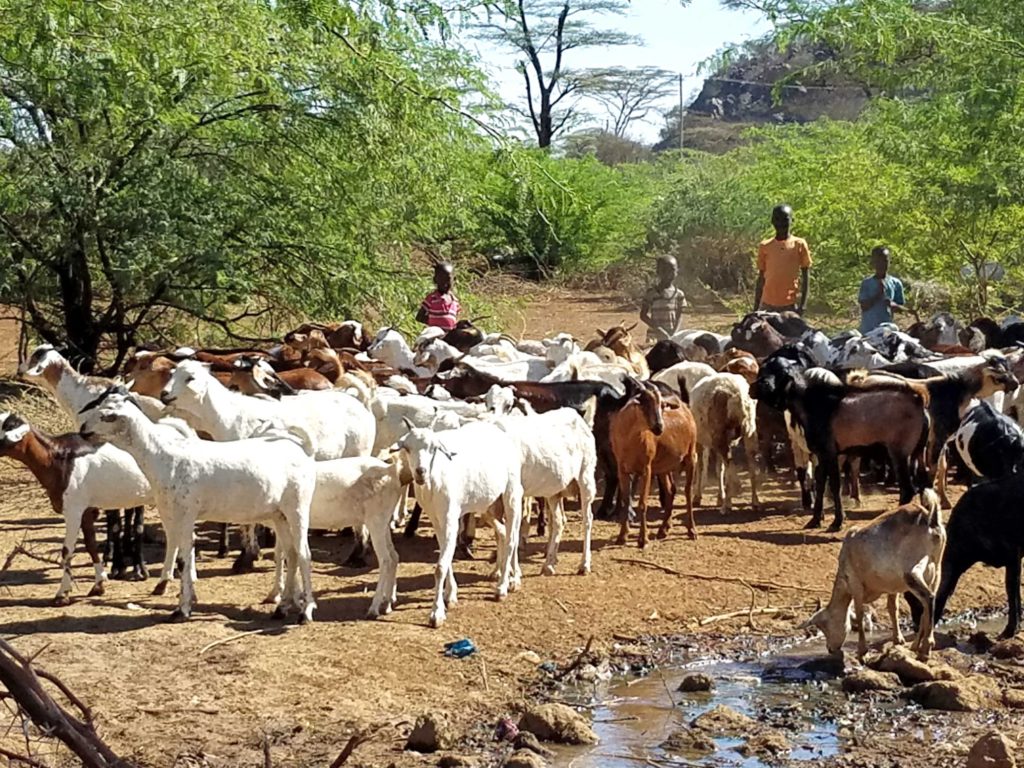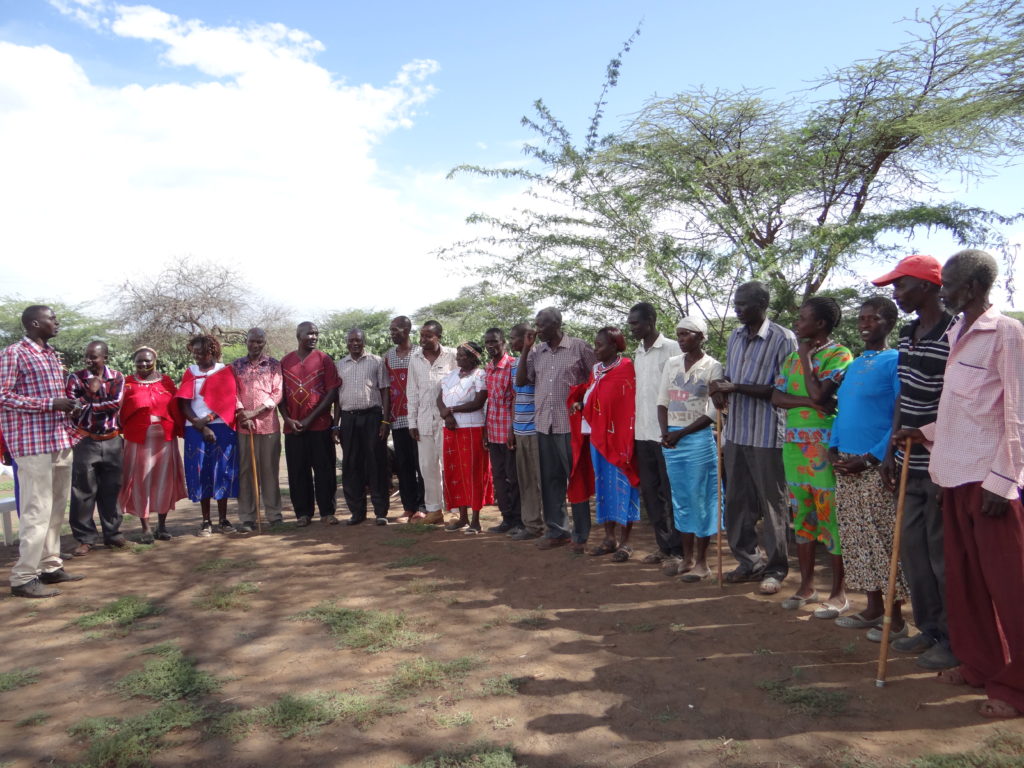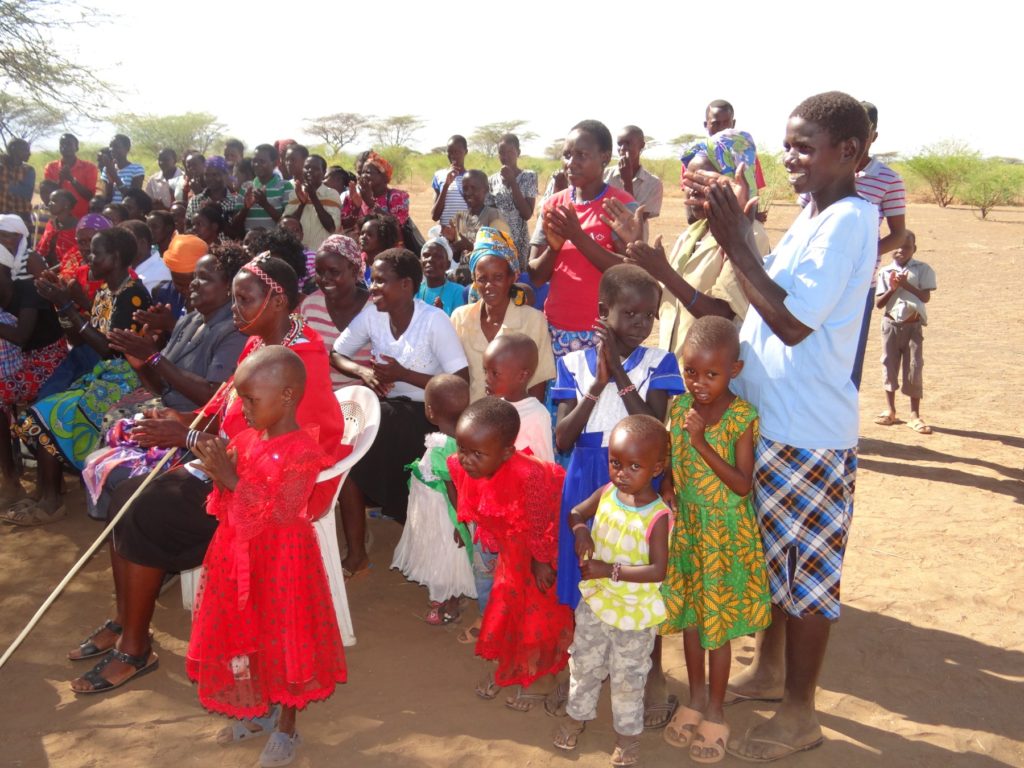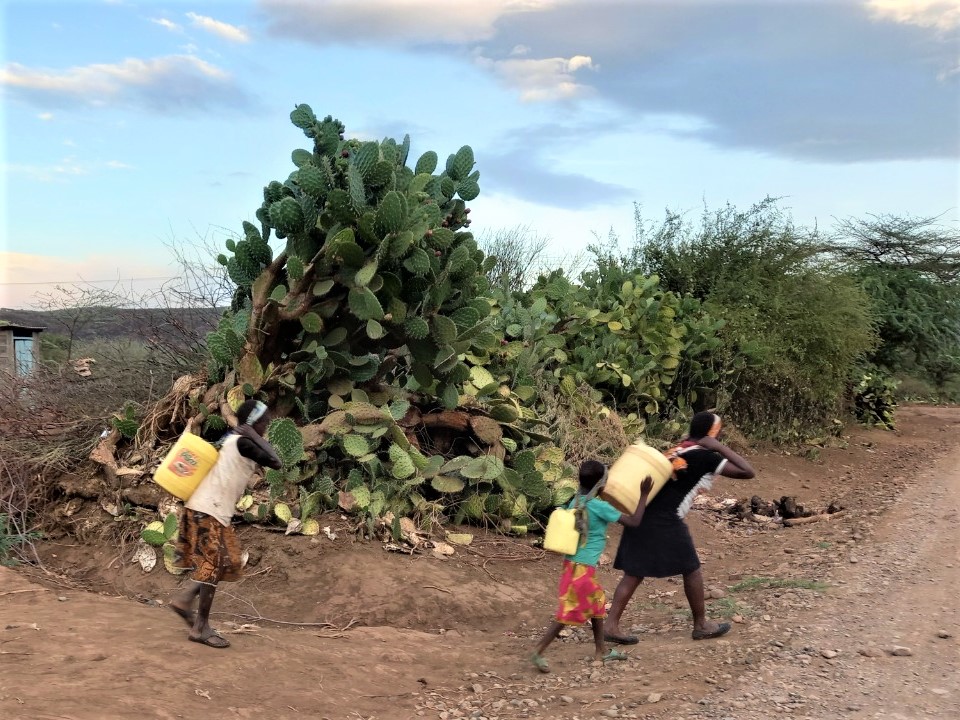About Us – The Village of Kailer
We are currently working with a small, rural village in Kenya called Kailer. The villagers are from the vulnerable Ilchamus tribe, one of the most marginalized ethnic communities in Kenya. They are primarily semi-pastoralists who rely on livestock and subsistence farming for survival.
The villagers have been confined to the periphery of Kenyan society for generations without the ability to have their voices heard, obtain information or particpate in civic discourse, leaving them to their own devices to access resources, rights, and services – directly affecting their quality of life, especially for women and girls.
The Kailer people are natural community organizers because they’ve had to rely on each other for their survival for generations. Although they are extremely poor by any Western standards, when we asked one of the village elders in what ways his people are rich, he said, “We are rich in land, family, community, internal strength, courage, traditional values and ideas”.
We have a lot to learn from our Kailer friends and are grateful for the opportunity to work with them to build community resilience. In turn, the VVI team is mentoring local leaders and supporting the villagers so they can build on their assets and make choices that will be sustained for generations to come without ongoing support from VVI.
| 1500 Ilchamus people living in Kailer | 320 Homesteads spread over 52 square miles |
| 119 Households w/access to safe water (2023) | 24 Households with covered latrines |
| 5-7 # of miles women walk a day to fetch water | 6-8 Hours a day spent looking for water |
| 1500 Villagers who’ve had typhoid and dysentery | 0 Access to modern medicine in the village |
| 10 Households with electric | <10 # of women with secondary education |
| 8 Women with paid employment | 20 Men with paid employment |
| 97% Unemployment rate | $60 Average household income/month |
We envision a just world where all people have an opportunity to thrive – not simply survive.
WE BELIEVE vulnerable people want a hand-up, not a hand-out.
WE BELIEVE everyone’s voice should be heard and everyone’s dream has value.
WE BELIEVE in social justice and the enormous potential that exists within all people.
WE BELIEVE sustainable change requires programs that respect local wisdom, resourcefulness and tradition.
WE BELIEVE we can learn something of value from everyone we meet.
WE BELIEVE that poverty doesn’t define a person or what they can accomplish.
Click on a name to see their profile.
Art Fitzgerald, Board Secretary, US Program Director
Doug Hauth, Co-Founder, VP/Chief Development Officer
Anne Hill, Treasurer/Chief Financial Officer
Jackson Lekisemon, Outcomes Coordinator
Caroline Lentupuru, Ilchamus Community Advisor
Safe Water Committee, Water Co-op Leadership Team
Jackie Shaffer, Co-Founder, President
Micah (Mike) Tenges, Kailer Community Advisor
We form alliances with Kenyan leadership organizations that provide a process for villagers to be part of civic discourse, oversee projects on-site, serve as a communication liaison for U.S. program managers, and ensure that solutions are culturally and fiscally sustainable.
We partner with businesses, civic clubs, foundations and faith-based communities in the U.S. and East Africa who support our mission.
And we join with many generous individuals who donate funds, in amounts small and large, to transform lives in Kailer.
 |
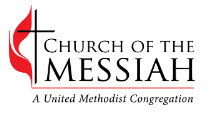 |
 |
|
Tifft Family Foundation |
 |
|
Our co-founders, Jackie Shaffer and Doug Hauth, have been friends since their teens and collaborators on business projects for over 20 years.
One of their projects took Jackie to East Africa in 2014 to meet with girls being sponsored to attend secondary school. These bright young women from vulnerable and extremely poor ethnic groups had never experienced any of the things we consider in the West as necessary for survival, but each of them had a vision of what their futures would bring with an education. Jackie returned to Sub-Saharan Africa numerous times, and each time, she came home with stories – not only of the many challenges experienced by marginalized people, but also of their determination, hope and courage.
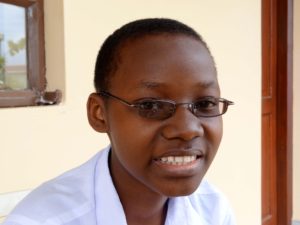 “When I was in Tanzania, I met a 14-year-old girl named Rosemary, whose mother experienced violence at the hands of a relative, eventually dying of her injuries, simply because she insisted her daughter go to school. Rosemary suffered frequent bouts of typhoid and malaria and a serious eye infection caused from contaminated river water. Her vision was so poor she could barely see to read, nevertheless she made good grades. Someone had given her a pair of second-hand glasses, and my eye went straight to the splintered pea-sized hole in one lens. I asked her how she could see through the broken glass and she looked at me confused… ‘I can see perfectly fine all around it.’ I was humbled by her answer and learned from this wise young woman what gratitude and being rich truly means.”
“When I was in Tanzania, I met a 14-year-old girl named Rosemary, whose mother experienced violence at the hands of a relative, eventually dying of her injuries, simply because she insisted her daughter go to school. Rosemary suffered frequent bouts of typhoid and malaria and a serious eye infection caused from contaminated river water. Her vision was so poor she could barely see to read, nevertheless she made good grades. Someone had given her a pair of second-hand glasses, and my eye went straight to the splintered pea-sized hole in one lens. I asked her how she could see through the broken glass and she looked at me confused… ‘I can see perfectly fine all around it.’ I was humbled by her answer and learned from this wise young woman what gratitude and being rich truly means.”
Rosemary returned to her village after graduation hoping to prove to the elders that an educated girl could make a difference, but there were no opportunities for her there, so she fell back into the cycle of extreme poverty, fetching dirty water and caring for her younger siblings.
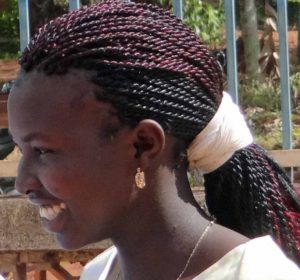 “In Uganda, I met Patience who had a dream of being a vet so she could make a difference in her village by keeping the livestock healthy. She received top grades on the national exams, but there weren’t any loans or scholarships for a woman to attend university in her country, particularly one from a marginalized tribe. So, her only alternative, like Rosemary, was to return in her very poor village to help her mother with chores and perform day-labor in the fields in exchange for vegetables for her family’s table. Nevertheless, she was determined to wait it out until she could find a way to make her dream a reality. I asked her what she planned to do to avoid marriage and babies. She told me ‘I shave my legs with a sharp rock because in my village men find this less desirable, and I allow them to think I am HIV+ so they’ll leave me alone.’ “
“In Uganda, I met Patience who had a dream of being a vet so she could make a difference in her village by keeping the livestock healthy. She received top grades on the national exams, but there weren’t any loans or scholarships for a woman to attend university in her country, particularly one from a marginalized tribe. So, her only alternative, like Rosemary, was to return in her very poor village to help her mother with chores and perform day-labor in the fields in exchange for vegetables for her family’s table. Nevertheless, she was determined to wait it out until she could find a way to make her dream a reality. I asked her what she planned to do to avoid marriage and babies. She told me ‘I shave my legs with a sharp rock because in my village men find this less desirable, and I allow them to think I am HIV+ so they’ll leave me alone.’ “
There were similar stories from young women all over EA, simultaneously heart-breaking and uplifting. Both Doug and Jackie were blown away by their resourcefulness, courage and patience. It seemed to them a travesty that being born a woman and into a marginalized group created such injustice. They were inspired to find a way make a difference.
An opening came in 2014 because of a chance meeting at a conference in Nairobi between Jackie and a fellow attendee, Caroline Lentupuru, a Kenyan woman from the Ilchamus tribe. It was an encounter of like-minds and souls from opposite ends of the world. As it turned out, Caroline had also been strategizing about how to empower young women in these poor remote villages. She believed the only way to build resilience and sustainable transformation was from the “inside-out” – so women, in particular, could have options to contribute and “be all they could be” without leaving their communities behind. She invited Jackie to visit her village, Kailer. It was an eye-opening, life-changing experience.
Jackie witnessed first-hand what life was like for a community living in extreme poverty with lots of dreams but limited information, no resources and minimal or no education because everyone- women, men and often children, had to spend their days contributing to the mere survival of the village. The problem was much larger than creating opportunities for women – it was about empowering the entire community to help itself achieve self-reliance.
Jackie and Doug had built their executive careers around the concept of transformational leadership – bottoms-up participatory change. They were moved to bring this worldview to EA, convinced it would be the people themselves who would problem-solve and find ways to sustainably improve the quality of their own lives if provided the tools and resources. Doug and Jackie, along with Caroline and other like-minded individuals, formulated the idea of Village Voices International with the vision of helping vulnerable people thrive – one village at a time. Their first village would be Kailer.
